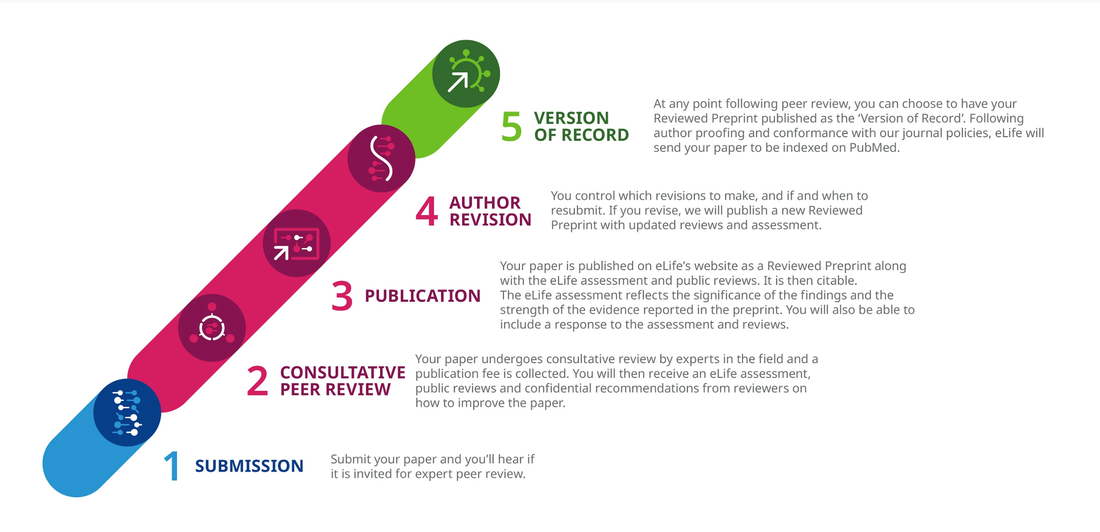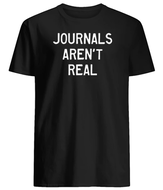|
Reading time: 5 minutes For another perspective focused more on the issue of asking readers to do even more to navigate the "fire hose of information" spewing at them: a good piece by Stephen Heard Let me start by saying: the new eLife model is bold, and I am a big fan of eLife. I do not think it will be the end of the journal. I don't think it should even tarnish eLife's reputation much. In fact, I think I like it. But that's because, as far as I can tell, eLife has simply traded "hard" power for "soft" power in editorial decisions. Now I do have a concern with the very direction eLife is heading: I think it's bad for the health of science. I think it's a push towards the death of expertise. Contrary to many, I like journals. I even like journals I hate. I like them because they're expert authorities, and the world needs expert authorities. This isn't about the pursuit of an idyllic science publishing landscape, it's about the nature of science communication to human beings, which last I checked, describes me aptly. It's about how we maintain accountability over information flow, over scientific rigour. I like the eLife proposal precisely because eLife has... in reality... hardly done anything. But all the pomp in the announcement they've made is a direction I do not want to see science go, and one I think is genuinely dangerous. With that said... So I hear eLife announced a thing? Yes, yes dear reader they did. Here's some important context before we get into the announcement (from: link):
So what did eLife announce? Here's the jist (from: link):
Two comments: Point #1: Effectively, editors now have the power to desk-accept papers before they're even sent for review. Just think about that as we continue re: gatekeeping. Point #3: I have not seen near enough acknowledgement of this in the public discourse. The fact that there's an editor statement within the article itself means that regardless of whether one reads the reviews (99% won't), there is an up-front assessment of the work attached. What does this mean for eLife? Let me say: I don't actually think eLife has done anything especially revolutionary here. They already published peer reviews with final articles, and as part of Review Commons, editorial decisions and author responses could already be posted on peer-reviewed preprints sent to eLife. What they've done is exchanged editor hard power for soft power. Before, editors gave a binary accept/reject. Now they give an implicit accept/reject. I doubt authors will actually publish articles as final version of record if they're totally trashed in the editor statement. But it frees up authors in that grey area to publish anyways, even if the editor and reviewers aren't fully endorsing the article. Without a change in editorial desk rejection rate, eLife will simply be accepting more papers. I do think, in principle, that should affect the quality/impact of papers published with eLife. It takes a special kind of nihilist to think all paper rejections are totally arbitrary... But the change in overall publication rate is likely to be pretty minor. The authors have been granted a bit of power here (kudos to eLife). But again, it's still the editors that have both the initial say AND the final say. It will be interesting to watch how editor behaviour changes with this announcement. Do they desk reject more? Less? No change? That will be the real metric determining the success of this policy change. You said this was pushing towards the "death of expertise." That's a pretty strong statement?
Yes, yes it is a pretty strong statement. Just to familiarise folks with the term: the death of expertise refers to the movement that encourages public distrust of experts (link). It is cited frequently in the decline of American political discourse. It is what leads to people rejecting expert opinion, and shopping around for the 1% of scientists that are willing to call global warming a hoax, or who are willing to espouse debunked anti-vax rhetoric. It encourages people to ignore educated opinion and stick to their convictions: "I know I'm right, so I don't need your approval." bioRxiv has a disclaimer on all preprints precisely because authors can't be their own judge and jury. Full author empowerment can't be the future of science. Science is built on authors being accountable to experts. It's built on experts being accountable to experts. It's just as built on experts being objective and open-minded, and we fail at that sometimes; we're only human. But until we've completed the transition to becoming robots (at least 5 years, maybe 10), we need to maintain accountability over what we induct as scientific information. The eLife proposal does that in a novel way by ceding only a bit of power over publication to the authors. But at its core, eLife's new model is the same old author-journal relationship: journal editors have the final say. To me, that's a good thing. ~Mark This conversation feels unfinished. In a follow-up post, I'll tackle the question: "do we really need journals?" Comments are closed.
|
AuthorMark Archives
March 2024
Categories |



 RSS Feed
RSS Feed
